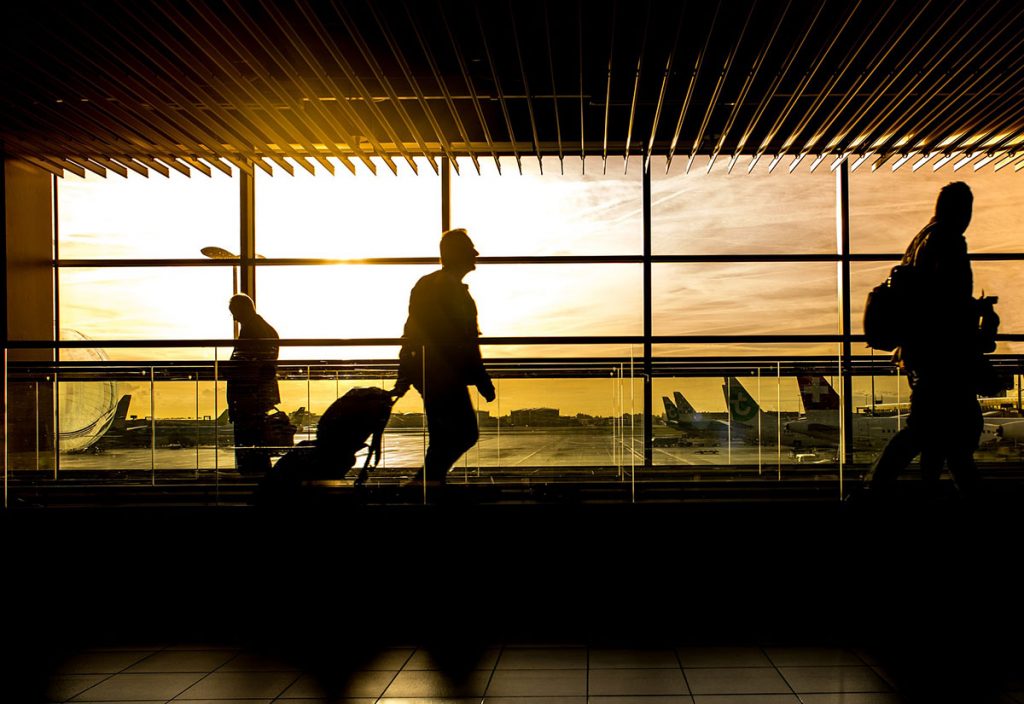
More than a year-and-half since the first case of coronavirus, consumers have altered many of their spending habits under the new reality with some remaining even after the pandemic is almost gone, said Mohamed Bardastani, CEMEA Economist and Director of Business and Economic insights at Visa.
Earlier this month, credit card giant Visa released its CEMEA Covid-19 Impact Tracker to understand how consumers’ purchasing behaviour and attitudes, level of spending and payment preferences, continue to be impacted by the pandemic. The survey was conducted across four countries, including the UAE and Saudi Arabia.
In an exclusive interview with Arabian Business, Bardastani discusses the survey results, highlighting that e-commerce is here to stay and how SMEs need to become more tech-savvy to compete. He also focuses on the return of leisure travel and explains why it will take longer for business travel to bounce back.
Could you give us an idea on whether dining and shopping have returned to pre-pandemic levels in the UAE and Saudi Arabia?
Covid-19 has radically impacted the very way we live and forced us all to rethink our spending and saving habits, whether it is for essential everyday shopping, dining or luxury retail purposes.
Since our last Visa CEMEA Covid-19 Impact Tracker survey (conducted in late June last year), there has been a significant improvement in consumer spending patterns.
This is especially true for essential categories, which include groceries, pharmaceuticals, super and hypermarkets, as well as visits to petrol stations, where shopping behaviour has returned to pre-pandemic levels. In fact, approximately 40 percent of UAE and 51 percent of Saudi consumers are positive about essential shopping, as opposed to 28 percent and 32 percent respectively in June last year.
We’re also seeing a pick-up in shopping for fashion and luxury items across the region. Dining habits have seen slight changes, with 24 percent and 30 percent of consumers in UAE and Saudi Arabia, respectively, still preferring home cooking or opting for contactless deliveries.
As a whole, today’s consumers seem to be eager to resume their pre-pandemic routines, but remain cautious in their actions and behaviour given the uncertainty of the coronavirus pandemic.
This year, with Saudi Arabia and the UAE among the leading countries globally in terms of vaccination rates, there is an added air of optimism among consumers and merchants about the future, and I look forward to seeing how these trends evolve in the coming year.
Over a year since the pandemic, the survey indicates consumers still prefer online shopping. Do you think this is a long-term trend?
Digital adoption has taken a quantum leap and this growth has brought with it many changes that are set to stay. There has been a noticeable shift in attitudes towards e-commerce and away from traditional face-to-face purchases, as consumers want to make payments in the safest and most convenient way possible.
Our survey highlights that online shopping for various categories remains quite strong in the key CEMEA markets, with fashion and luxury stores notably gaining traction. For example, a significant proportion of consumers prefer buying groceries online in the UAE (59 percent) and Saudi Arabia (62 percent), with 88 percent and 97 percent stating they will continue doing so after the crisis.

These attitudes also prevail for dining, luxury retail and fashion, with more consumers choosing digital channels for convenience, safety and a more seamless shopping experience.
Overall, the pandemic has created significant opportunities for the e-commerce sector, especially those retailers entering the digital sphere for the first time, and those consumers making their very first online purchases.
In the future, we expect to see more shoppers purchasing online, both digital savvy millennials, and also older users who have been educated during Covid on the benefits of e-commerce.
Can you give us more stats on the region’s travelling habits and whether they are taking more regional or international vacations?
As travel restrictions begin to lift, we have witnessed a significant boost in consumer confidence surrounding travel.
In the UAE and KSA, 46 percent and 50 percent of consumers, respectively, have already went, or are planning to go, on vacation this year, with 73 percent and 56 percent preferring international destinations, rather than short-haul or domestic trips.
These travel enthusiasts do remain cautious though, with respondents highlighting that they would choose destinations with a 70 percent or higher vaccination rate.
And whilst vacations and family visits have slowly recovered this year, it certainly does not come as a surprise that whilst business travel has improved since last year, it is unlikely to fully recover to its pre-pandemic levels. This is mostly due to the advent of virtual meeting platforms throughout the pandemic, when social distancing and travel restrictions were present.

The emergence of new variants, uncertainty around restrictions and the pace of the rollout of vaccinations to some parts of the world are variables that make it tough to predict whether the old patterns of work travel will return.
What can SMEs do to regain the market share and local support they acquired during the pandemic?
Throughout the pandemic, consumers were particularly keen to support small businesses – shopping at neighbourhood stores and supporting local stores. Our most recent research shows that whilst 74 and 76 percent of UAE and Saudi respondents continue to support SMEs, the intensity we witnessed during the peak of the crisis is slightly dwindling across most of our key markets as the severity of Covid-19 wanes.
In today’s world, there is an accelerated demand for secure, digital commerce solutions and small businesses looking to regain the market share and achieve a steady state of growth, must adapt accordingly. The ability to pay digitally is no longer simply a convenience but a necessity for consumers and merchants, with an average of 69 percent and 66 percent of UAE and Saudi consumers preferring digital payment methods such as contactless, mobile payments and digital wallets over cash or cash on delivery.
That is where strategic partners and fintechs who collaborate with networks like Visa’s come in, where we can provide easy-to-implement payment solutions for SMEs. At Visa, we always adapt our approach to factor in emerging digital trends. We understand the valuable role that digital transformation plays in economic development and growth and therefore provide real-time solutions to meet current needs.
What is the future of cryptocurrencies in the region?
The Middle East has established itself as a central hub for innovation in financial technology, due in large part to the policies framed by regulators in the UAE who understand that the world is increasingly adopting cryptocurrencies and blockchain technology.
As a result, there has been a vast increase in consumers’ knowledge of cryptocurrencies, with 84 percent of consumers in the UAE and 76 percent in Saudi Arabia reporting awareness in our latest survey, and over 52 percent in both countries planning to invest in crypto over the next 12 months.
Cryptocurrencies are a relatively recent area of focus for Visa, beyond the traditional payments’ infrastructure. Earlier this year, we began incorporating cryptocurrencies into our global payments network, creating an ecosystem that makes cryptocurrency more usable for consumers.




